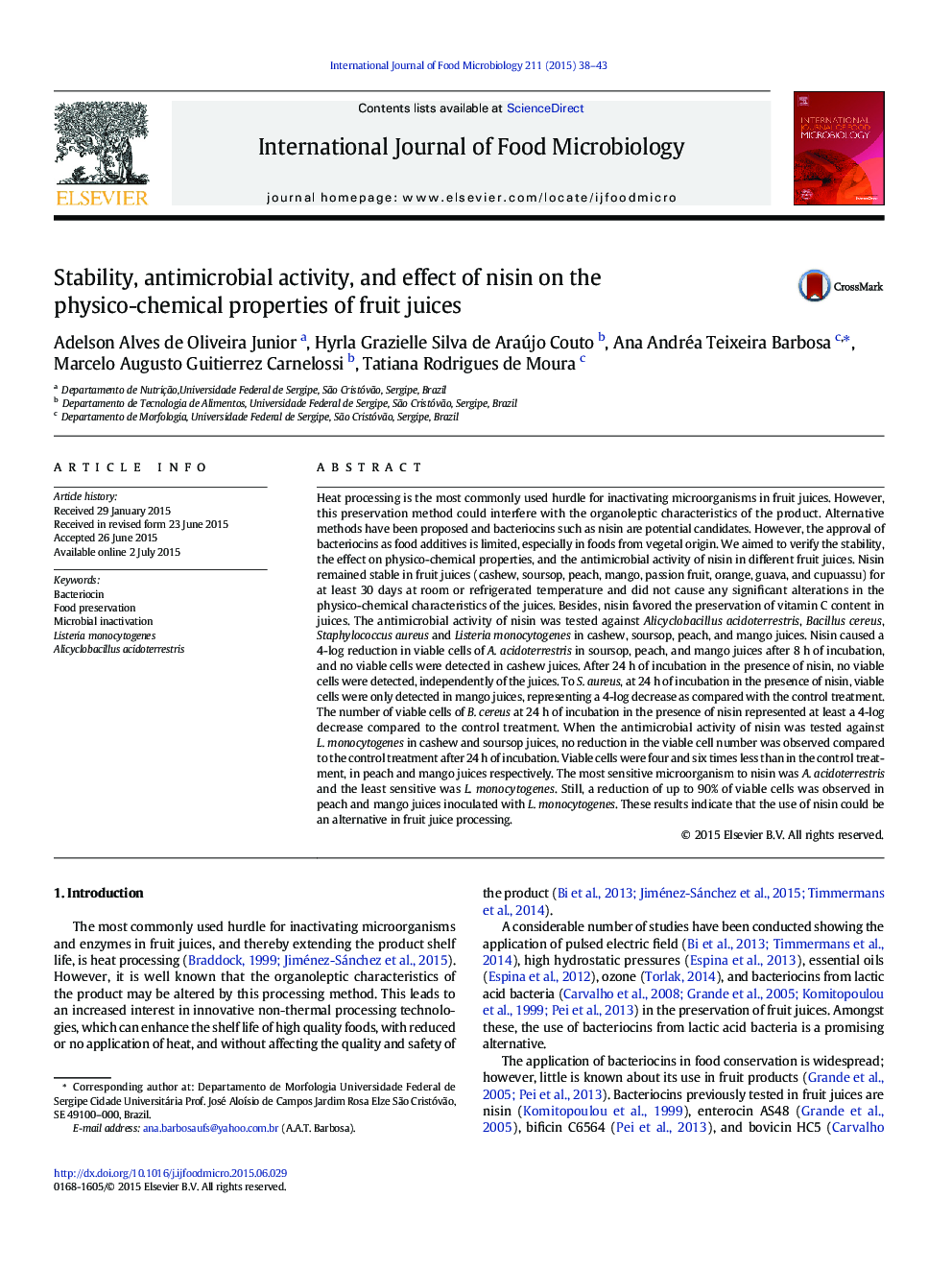| Article ID | Journal | Published Year | Pages | File Type |
|---|---|---|---|---|
| 4366509 | International Journal of Food Microbiology | 2015 | 6 Pages |
•The effects of nisin on the physicochemical and microbiological quality of fruit juices were determined•Nisin favored the preservation of vitamin C content in juices•Nisin inhibited Listeria monocytogenes, Staphylococcus aureus, Bacillus cereus, and Alicyclobacillus acidoterrestris•Nisin could potentially be used in the preservation of fruit juices
Heat processing is the most commonly used hurdle for inactivating microorganisms in fruit juices. However, this preservation method could interfere with the organoleptic characteristics of the product. Alternative methods have been proposed and bacteriocins such as nisin are potential candidates. However, the approval of bacteriocins as food additives is limited, especially in foods from vegetal origin. We aimed to verify the stability, the effect on physico-chemical properties, and the antimicrobial activity of nisin in different fruit juices. Nisin remained stable in fruit juices (cashew, soursop, peach, mango, passion fruit, orange, guava, and cupuassu) for at least 30 days at room or refrigerated temperature and did not cause any significant alterations in the physico-chemical characteristics of the juices. Besides, nisin favored the preservation of vitamin C content in juices. The antimicrobial activity of nisin was tested against Alicyclobacillus acidoterrestris, Bacillus cereus, Staphylococcus aureus and Listeria monocytogenes in cashew, soursop, peach, and mango juices. Nisin caused a 4-log reduction in viable cells of A. acidoterrestris in soursop, peach, and mango juices after 8 h of incubation, and no viable cells were detected in cashew juices. After 24 h of incubation in the presence of nisin, no viable cells were detected, independently of the juices. To S. aureus, at 24 h of incubation in the presence of nisin, viable cells were only detected in mango juices, representing a 4-log decrease as compared with the control treatment. The number of viable cells of B. cereus at 24 h of incubation in the presence of nisin represented at least a 4-log decrease compared to the control treatment. When the antimicrobial activity of nisin was tested against L. monocytogenes in cashew and soursop juices, no reduction in the viable cell number was observed compared to the control treatment after 24 h of incubation. Viable cells were four and six times less than in the control treatment, in peach and mango juices respectively. The most sensitive microorganism to nisin was A. acidoterrestris and the least sensitive was L. monocytogenes. Still, a reduction of up to 90% of viable cells was observed in peach and mango juices inoculated with L. monocytogenes. These results indicate that the use of nisin could be an alternative in fruit juice processing.
